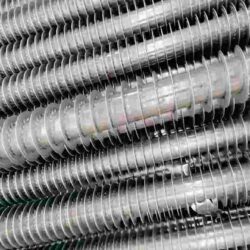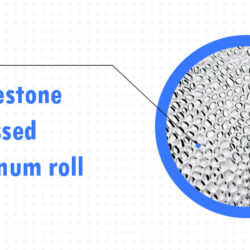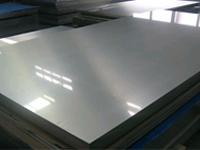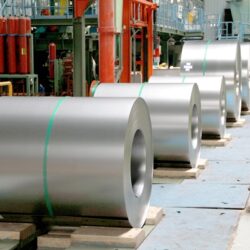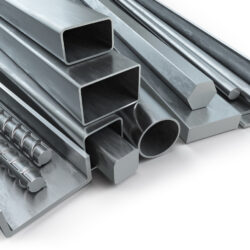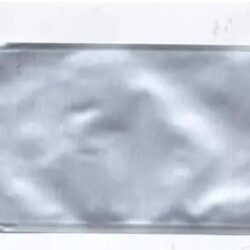Recycling scrap metal means that we avoid the environmental costs of dumped rubbish and the risk of it leaching toxic chemicals into groundwater at landfill sites. … Recycling also ensures materials don’t become litter! • Reducing the need to dig for virgin materials conserves soil integrity and wildlife habitats.
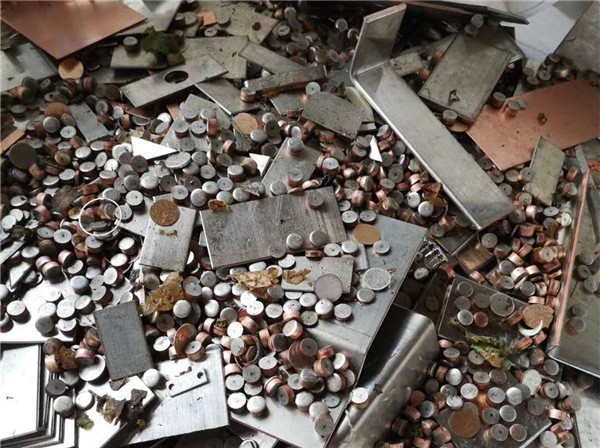
Often when we talk about recycling, we think of small-scale household items like plastic bottles and loose paper. But one of the biggest and most important sectors of the recycling industry is scrap metal.
Metals recycling is an established, globally competitive industry that provides essential secondary raw material for metals manufacture, which in turn enables a significant reduction in use of energy and virgin resources.
Metal recycling is common practice, as it uses less energy than metal production. Metal can withstand continual recycling, making it a popular area for companies to survey when conducting their own environmental waste audit. All ferrous metals from iron to stainless steel can be recycled as well as non-ferrous metals such as copper, zinc, and aluminium, making it easy for businesses to bundle scrap metal together for collection.
scrap metal tubes ready for recycling
It is even possible to recover precious metals from computers, like gold, palladium silver and platinum.
Don’t worry, there’s also something in it for you. As well as the excess energy it saves, metal recycling can save your company money. You’ll find that you’ll spend less money on production once you recycle scrap metal rather than reproducing it. In this sense, there’s no reason you shouldn’t start recycling all metal and items containing it, but just for good measure, we’ve listed our top five reasons metal recycling is important.
- To preserve natural resources: Recycling metal substitutes the need to produce virgin metal. In turn, this preserves precious natural resources like coal and iron ore, which are used in the production of metals. As such, recycling metal is seen as an environmental activity — an easy way to take corporate responsibility. Recycling metals also requires less energy than producing new metals. It’s important to give thought to resources like coal. Why? Ten years ago, coal was already beginning to become a climate issue, accounting for 43% of global greenhouse gas emissions. This issue has perpetuated ever since.
- To make the best use of raw materials: Metals is one of the few raw materials that can be readily recycled without damaging its original properties. This means that there isn’t any real reason to create new metal — apart from to meet increased demand. The recycling process can be repeated as many times as needed, even with valuable metals such as aluminium. Scrap metal recycling facilities will always accept a wide range of metals like steel, as operators know that the value of this material will never decrease. Where there’s muck…there’s quite literally brass.
- To offset your company’s carbon emissions: It’s becoming increasingly important for companies to recycle all raw material in attempts to achieve ambitious “zero to landfill” targets. Recycling metal is an environmental alternative to other forms of disposal, as it cuts down emissions and reduces air pollution. By recycling metal, you’re contributing to your business’s carbon goals. Above all, the recycling process will help to eliminate pollution from the atmosphere and encourage others to make the most of metal’s versatile usage.
A tonne of aluminium recycled saved 9 tonnes of CO2 emissions from being released into the atmosphere. The Planet Mark Environmental Foundation confirms that every tonne of aluminium that is recycled results in conserving five tonnes of bauxite. - To save money by reducing production cost: There’s no shame in recycling as a result of a financial incentive. Most companies recycle on the basis that it’s actually cheaper to do so, allowing you to drive down production cost (and convert this spend into collection costs). It’s much more affordable to utilise the waste that you have by building an effective waste stream than to create natural resources from scratch.
- To meet recycling industry standards: As people grow more concerned about the environment, the recycling industry is putting new pressures on businesses to meet higher recycling standards. Firms are expected to recycle materials where possible, with metal recycling a huge part of this. Needless to say, if you have scrap metal laying around on-site, you should feel obligated to take action. On top of this, the recycling industry benefits the economy by providing employment in waste facilities.
What counts as scrap metal?
Scrap metal is divided into two categories: ferrous and non-ferrous.
Ferrous metals and alloys are generally heavier, stronger materials that contain iron. They include carbon steel, stainless steel, cast iron, and wrought iron, and are often used in housing construction, cars and trucks, and railroads.
Non-ferrous metals include copper, lead, brass, aluminum, tin, zinc, and others. They are among the few materials that do not degrade during the recycling process, meaning they can be recycled an infinite number of times. Non-ferrous metals are lighter and more malleable than ferrous metals.
Why you should recycle scrap metal:
Save energy. The process of recycling metal uses less energy than making brand new metal. This cuts down on greenhouse gas emissions and allocates energy for other purposes, like heating and lighting our homes.
Conserve natural resources. We drastically decrease the burden on our natural resources when we recycle scrap metal. For example, recycling one ton of steel conserves 2,500 pounds of iron ore, 1,400 pounds of coal, and 120 pounds of limestone.
Make MONEY. That’s right; in certain cases you can get paid for your scrap metal. We guarantee the fastest payment in the area, so check with us to see if your materials are eligible.
